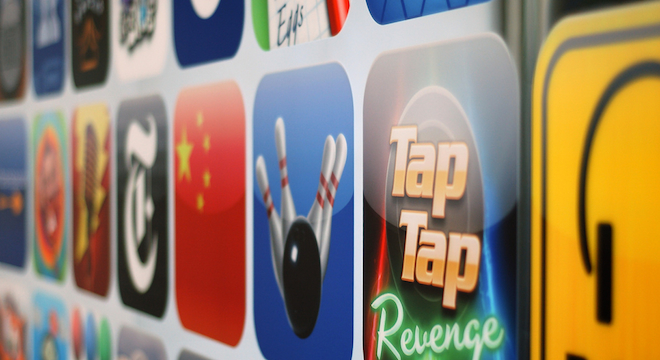Updated, 9:42 a.m. ET, Friday, July 6
Several developers of popular apps for the iPhone and iPad sold in Apple’s App Store have reported a software corruption issue in recent days that appears to be causing many newly updated apps to crash as soon as they are opened up by users.
Prominent third-party developer Marco Arment, creator of the popular Instapaper article-saving app, was one of the first to sound the alarm on the issue on his Twitter feed and blog, after observing that an update he pushed out for Instapaper on Tuesday evening was followed by a “deluge” of complaints from users that the app crashed immediately upon launch.
“Lots of anxiety and research led me to the problem: a seemingly corrupt update being distributed by the App Store in many or possibly all regions,” Arment wrote on his blog on Wednesday.
Arment also put out a call to developers and users to send him reports of other affected apps, which he has compiled into a list totaling over 73 affected apps so far, including the popular Angry Birds Space game.
While that’s a small fraction of the over 500,000 apps available in the App Store, the prominence of the affected apps has drawn increased attention to the issue.
Arment contacted Apple but has not received an official response, he told TPM via email. Apple did not respond to TPM’s own request for information on the issue in time for this article’s publication.
Though Arment acknowledged that the issue was fixed for his Instapaper app within hours, it’s is apparently still ongoing as of Thursday morning for many other apps, leading Arment to caution developers against pushing out app updates until Apple clears up the source of the problem. To be clear: The problem seems to be affecting only app updates so far, not totally new apps published in the App Store.
“With what I know so far, the problem is related to Apple’s FairPlay DRM, which Apple wraps around the apps before publishing to the App Store,” Arment told TPM via email. “The FairPlay system refuses to update the affected apps, possibly due to file corruption or a DRM-system failure.”
FairPlay is an Apple encryption technology that acts as a form of digital rights management (DRM), preventing files including Apps, music and videos from being played on unauthorized devices, designed to cut down on piracy. Like other forms of digital rights management, FairPlay has been criticized by open Web proponents as being cumbersome and restrictive for users and developers. However, it is also likely integral to Apple’s strategy to keep its App Store free from spam and malware.
Arment told TPM he didn’t think that the corruption issue would damage Apple’s reputation with customers or developers too severely, but that it could have a more profoundly negative affect on the third-party software developers whose apps are crashing when users try to access them.
“Apple will be fine,” Arment wrote to TPM via email. “Everyone has a short memory. But it will cause a LOT of 1-star reviews and negative customer feedback for affected developers. If Apple doesn’t delete these reviews en masse — and I suspect they wouldn’t — it’s going to permanently impact these developers’ average ratings and sales potential.”
Arment said that he had not encountered the issue before but that he had received reports from developers that a similar or the same issue in the App Store arose in mid-June.
Late update: According to TechCrunch, Apple on Thursday afternoon reached out to some affected developers by email as well as posted the following message to its blog: “We are aware of the issue related to apps crashing after update. We are currently working on resolving the issue. Stay tuned for updates.”
Later update: Apple late Thursday released a statement to All Things D stating that the problem was a server issue that has been resolved:
“We had a temporary issue that began yesterday with a server that generated DRM code for some apps being downloaded…The issue has been rectified and we don’t expect it to occur again.”
Correction: Updated to correct Arment’s statement concerning App Store ratings to say that Apple would not likely remove the 1-star reviews, from originally saying that the company would.






